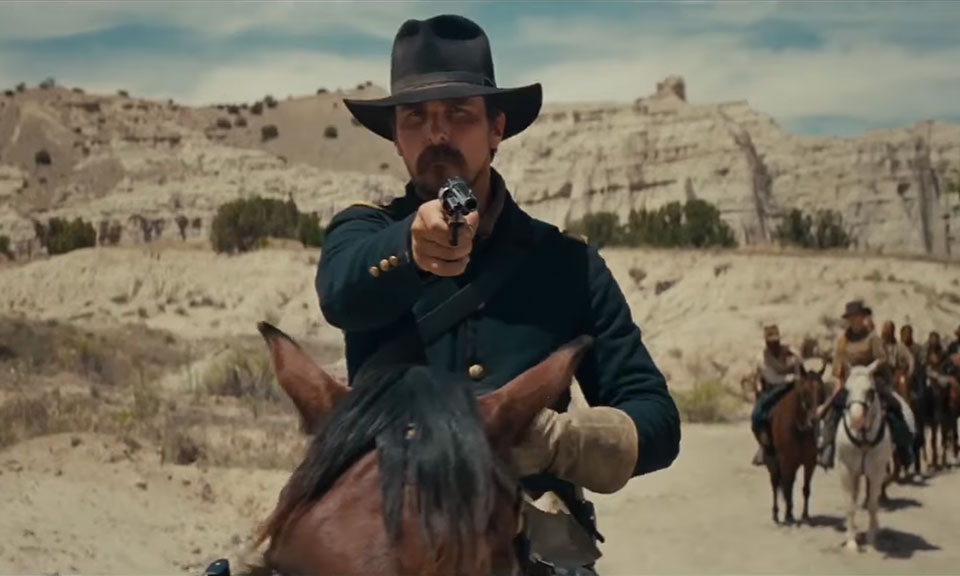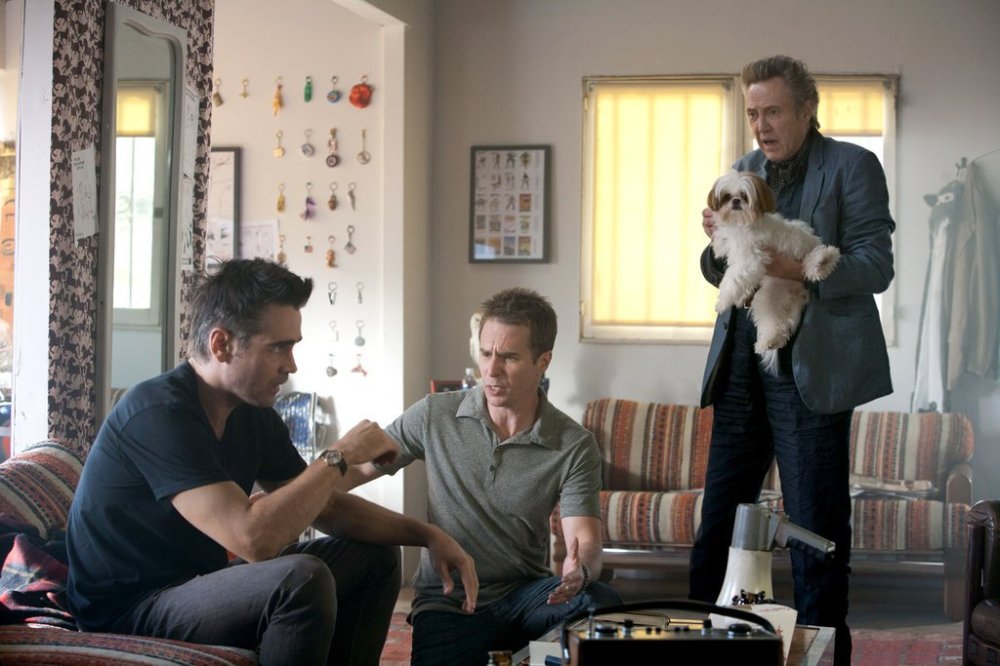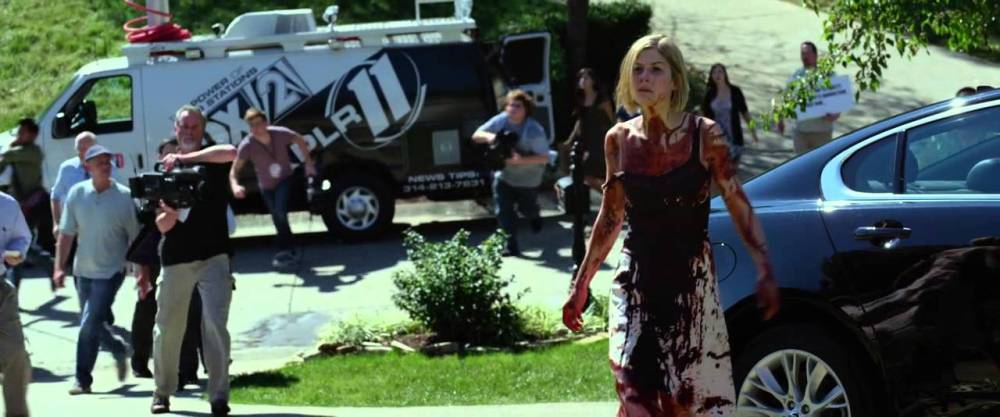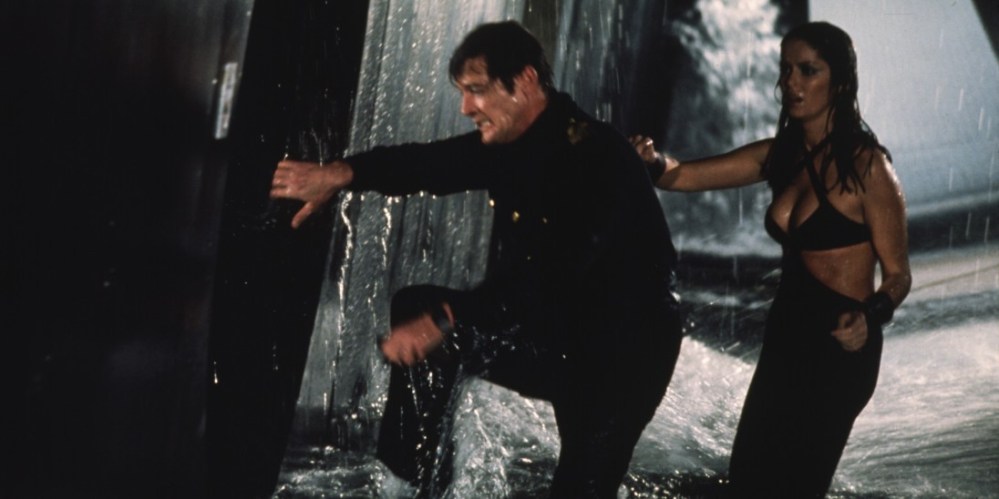
Scott Cooper directs Christian Bale, Wes Studi and Rosamund Pike in this western epic where a violent Army captain, infamous for suppressing rebellious indigenous tribes, finds himself escorting a former adversary across country back to his spiritual land.
With ragged and effecting performances from the leads, bursts of disturbing conflict and a true love of genre and historical accuracy, this is a fine western. A bit more in love with character than plot, this charts the course of two white outsiders, who have both been brutalised in past clashes with Native Americans, as they come to a new understanding of the people they saw as demonic savages. It happens in an episodic and measured pace, with little regard for narrative. At the mid point of their quest, the initially brutal and openly racist protagonist that Bale powerfully essays comes face to face with Ben Foster. Foster is playing a soldier sentenced to death for exactly the same actions and attitudes that defined Bale before prolonged interaction with the family he escorts moved him. It is that type of movie, happy to put its main goal on hold for 20 minutes, just to put a mirror up next to a character we have seen soften and evolve, to mark the change. Not massively dissimilar to American History X in many regards. It is not a movie that attempts to look at racism from the victim’s viewpoint, rather explore how proximity, cooperation and inevitable mutual respect destroys racist attitudes in individuals. Some reviews have criticised Cooper for not giving equal voice to the Cheyenne family being protected. While that would be more balanced superficially, I think the criticism misses the story’s most vivid point. Different races, whether oppressors or victims, will never truly understand or be able to have an equal dialogue with the people they have mistreated or have been attacked by. Talk won’t heal these deep wounds. It isn’t a difference of opinion, where giving everyone an equal platform will somehow solve complex hatred. But by subsisting and interacting together regularly they can grow beyond those hostilities. For a white filmmaker to put reams of fake white liberal words into a 100 years passed Cheyenne chief’s mouth would be more harmful than admitting we’ll never now grasp how these people truly felt. When we close the movie’s journey with the sole Cheyenne survivor dressed in European garb and gifted with a Latin text, it is a tragic compromise rather than a victory. Sure, he’ll be raised and cared for by people duty bound and full of guilt… but with no continuing connection to his people’s history or own language. That tragic compromise was a reality. Any other ending would be fairytale. And the admirable message of Hostiles is clear, if everyone keeps drawing up racial dividing lines between each other based on past transgressions, no matter how raw and wounding, rather than working and living together towards a common goal, we are doomed repeat these mistakes. While that is a more nuanced take on race relations than is currently fashionable, Hostiles shows a bravery in presenting it within a successful and rousing period adventure.
8









